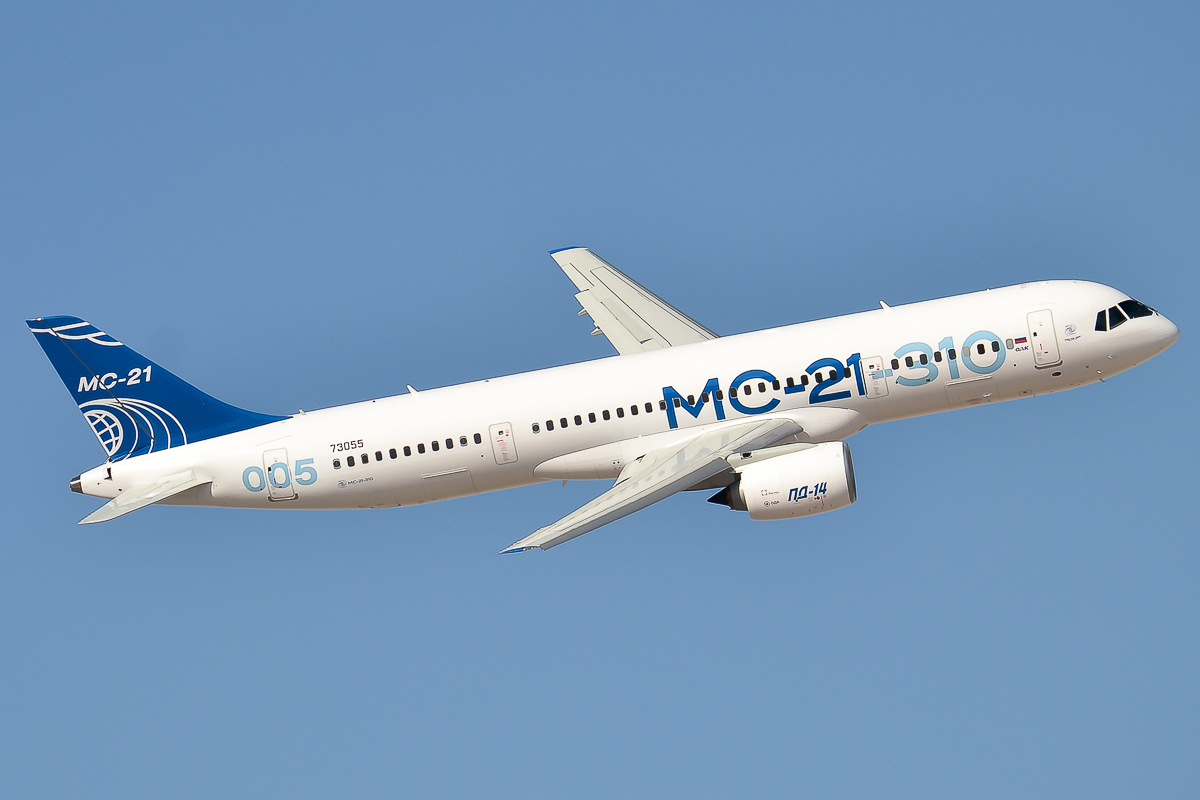MOSCOW, RUSSIA — Russian civil aviation regulator Rosaviatsiya has given its approval for Irkut MC-21, a single-aisle jet intended to compete with Airbus A320neo and Boeing 737 MAX, to use a composite wing and engine that are produced in Russia.
Irkut has created a version of the MC-21-300 variant called the -310 that is powered by the Aviadvigatel PD-14 engine. The composite wing parts of the aircraft are also supplied by Russian manufacturers to replace those that were previously imported for use on the twinjet.
Rosaviatsia approved the changes to be made, according to Rostec, the state technology corporation. Rostec stated that the necessary documentation for the changes was provided on December 29th. The MC-21 with a PD-14 engine has been undergoing testing, and over 160 flights with the plane were conducted in the past year.
According to Rostec, the PD-14 has shown that it is capable of performing at the same level as foreign engines. The MC-21 was originally designed to use Pratt & Whitney PW1400G engines, but the PD-14 was later added as an option.
Alexander Neradko, the head of Rosaviatsia, stated that the aircraft has demonstrated "excellent technical characteristics" and that the approval is a success for the domestic aerospace industry's strategy of replacing imports with domestic products.
The approval allows for the substitution of additional components, according to Yuri Slyusar, the director general of United Aircraft. This will enable the certification of a completely Russian aircraft by the end of 2024, which will allow Irkut to begin mass-producing the twinjet.
"We are concentrating significant resources on the MC-21 program, because the new airliner will become the flagship of the Russian fleet for decades to come," said Rostec chief Sergei Chemezov.
Sergei Chemezov also stated that Irkut plans to deliver more than 270 MC-21s by the end of the decade.
"Tests have confirmed the reliability and high quality of both the PD-14 engine and the composite wing made of domestic materials. This is another confirmation that, even under difficult sanctions conditions, our aviation industry is able to solve the most important tasks."

